“remember, oh self, it is better to be free.”
On today’s episode we’re going to be discussing loss — loss of family, loss of loved ones, loss of faith — and specifically we’ll be discussing loss in the context of excommunication from the Church of Latter-Day Saints.
For listeners who may not be familiar, excommunication from the LDS Church is the single most severe form of discipline which Church leaders can enact. It’s a severance, total and often sudden, from a person’s community and from their faith tradition, and its fallout can be devastating. While this form of punishment may have its proper uses, its clear that far too often it’s instead wielded as a form of censorship against proponents of progress and accountability. So, on today’s episode we’re going to be digging in deeper to understand excommunication and its impact, as well as other relevant forms of loss, as I’m joined by Natasha Helfer who sat down with me for a deeply honest interview about death, divorce, and her own experience of being removed from the Mormon Church.
Our Guest
Natasha Helfer
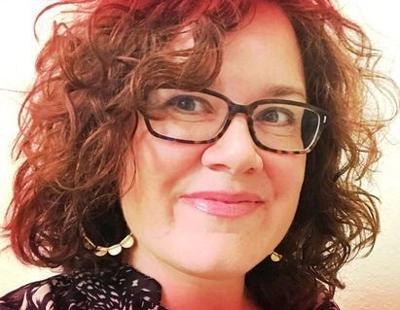
Natasha Helfer (she/her) is a Licensed Marriage & Family Therapist and a Certified Sex Therapist, speaker, writer, podcaster, and supervisor with 20 years of experience treating individuals, couples, and family systems.
The Poem
The Three Patriarchies
He’s my father, my husband, my God–
all three loved me, all three broke me,
all three irrevocably internalized
and intertwined in my identity.
All three rejected me at my core
in one way or another–
too fat, too big, too loud, too critical, too angry,
too proud, too smart, too sexual,
too much.
I, in turn, loved each of them,
accommodate them, but not enough.
Sought acceptance, sought approval,
sought love, sought validation,
sought agreement. sought healing
desperately screaming can’t you see?
Can’t you understand what I’m saying?
Don’t you know me?
How can this be happening?
But I was not willing to give it all away,
not at the cost of my very soul,
so I lost. I lost them all.
I will continue to love them
as I am also better off without them.
They set me free in excruciating ways,
wrenched my fingers away
and my desperate grasp,
leaving me bleeding on the ground
as they calmly walked away.
More important things to attend to.
Death, divorce, excommunication.
Expelled, cast out, abandoned.
None my choice. Yet I am free
to be fat and big and loud
and critical and angry and proud
and smart and sexual and much,
oh so much.
I am so much
love.
Most of all I am big love.
So now my voice soars, my heart sings,
my body heals, my spirit leaps,
my pleasure sugars
all with possibilities.
There will still be weeping
for what could have been
from time to time,
but remember, oh self,
it is better to be free.
Woman redefined, I fly away
from spaces that could not contain me,
from spaces that could not complete me,
from spaces that could not honor me,
from spaces that would not see me.
I am Goddess from within.
The Interview
Amy Allebest: Thanks so much for reading that, Natasha. I’m wondering if you can tell us what led you to write this piece?
Natasha Helfer: Yeah, I wrote this piece pretty much at the heart of the excommunication process that I was going through. It would have been, I guess in the days right before my Disciplinary Council was happening because I remember having it already in my notes as I was looking through my notes before walking into that office. Although I was somewhat hopeful that I wouldn’t be excommunicated, I figured that decision had already been made by the Church leaders just from the ways that I was being treated leading up to that Council and how quickly it was all going and moving, the lack of willingness to have dialogue and things of that nature…so I was preparing myself for that outcome.
It also came at a similar time that I was waiting for the State of Utah to announce my divorce being final. Those felt like two very big ejections in my life happening at a very similar time. I just remember the symbolism of it all and then having it coincide with this idea of 3’s that we have in LDS patriarchy–the three sons of male priesthood authority–and so of course my father was the next one that I thought of. He had died a few years before all of this happened and my relationship with him was complicated, you know? It was similar to the relationships I think I had with my husband and my Church where there was love and a lot of commitment, and also a lot of distress and disagreement and conflict in a lot of the ways that we misunderstood each other.
So I started thinking about that: these main male entities in my life had been, in a lot of ways, very similar. And none of them evil, none of them completely entities that I would say are hateful and awful…all entities that had, in many ways, formed me and built me up and been a big part of my development as not only a human, but even as a female and as a woman and in my roles as a woman. It also has been quite harmful and I don’t think that’s necessarily intentional, it just had been. I think, as many of us do throughout faith transition, and also I think throughout midlife (which I’ve been through both), we think about patriarchy, we think about the role and how that affects us in the relationships that we have. In particular with the people in our lives who were raised as men in these systems, who oftentimes are lovely and also are still part of the system who hurt us.
So that was all very prominent and very forthcoming in those days that I was sitting with a lot of contemplative pain, but also contemplative understanding of the cost of patriarchy in my life.
AA: Can you talk about that a little bit more, the cost of patriarchy in your life?
NH: It’s interesting. I remember almost laughing out loud when I published this. It took me a while to publish this publicly because I didn’t want it to feel disrespectful. Isn’t that funny? Even in my pain I’m still protecting these male figures in my life. But it’s more than just particular people, it’s more than just my father or my ex-husband. It’s the institution of fatherhood, it’s the institution of marriage, it’s the institution of organized religion that I was criticizing in this poem.
One of those comments I received went something like, “Oh Natasha, I’m so sad that you see God through this lens.” And I’m like “First of all, you know nothing about me or how I see God, and you’re missing my whole point.” My point here when I say that my God broke me… it wasn’t really about if I conceptualize a God at this point in my life, it’s not about that. It’s about the Mormon Church. It’s symbolic of that, and maybe because we don’t do symbolism very well (we do literalism better in Mormonism), maybe people missed that.
AA: Well, the Church does claim to speak for God, right? The leaders of the Church are pretty adamant that the word of the prophets and the word of God–it’s the same, right? And so it’s very…
…it’s more than just particular people, it’s more than just my father or my ex-husband. It’s the institution of fatherhood, it’s the institution of marriage, it’s the institution of organized religion…
NH: It’s very intertwined, right?
AA: Yeah. They claim that role pretty proudly.
NH: Mhmm. But as I’ve been thinking about your question–what has it cost me–I think it has cost me a huge piece of my identity. I was really having to figure out who I am without these entities in my life. So even though there’s this freedom that I speak of here, it wasn’t a freedom that I asked for and it wasn’t a freedom that I knew what to do with necessarily.
I think that’s very interesting given that I consider myself a fairly feisty, fairly independent, fairly well-educated, and even fairly privileged person–woman–able to earn a living wage and so…You know, here I am finding myself divorced in midlife and still terrified. Still terrified and not just from a financial perspective, but not even understanding how to identify myself outside of the family circle, right? Not understanding how to identify myself outside of that identity of providing for my children, that ideal family that I so desperately wanted to operate as the right kind of mother. And intellectually I could totally see it! I could be like “Natasha, how many times have you walked women through this kind of narrative in your own office? It’s so obvious!” And yet it cut to my very core and then I was like, oh wow that runs deep.
It was probably one of the first times I really understood the word ‘internalized’ anything. You know, we talk about internalized shame or homophobia, or internalized…five hundred terms. You can internalize something so deeply that you don’t even realize it’s there because you swim in it until you’re plucked out of that ocean and you can’t breathe because you only know how to live in the ocean, in the water.
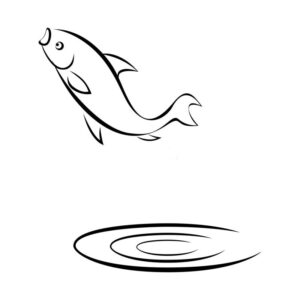
And that’s how I felt. I was a fish out of water and not really understanding how to navigate outside of that identity, that I had to hustle for my worth through the lens of these patriarchies that have the right to decide whether or not I was worthy. They had the right to decide whether or not I was good enough, whether or not I was desirable enough, and whether or not I could enter their buildings, whether or not I would disappoint them. You know, when I think about a father figure and all that really means, I start to realize how deeply ingrained that was, how important that was for me to feel that sense of making sure that they were okay with me. And then realizing they’re really not. They’re really not okay with me, to the point that like…yeah, I’m out. There’s no amount of screaming or raging or cussing or patriarchal posturing or saying the F-word or crying or begging (that’s my raging side) but even the other side, like being stoic and elegant and giving space and being professional. I tried it all. There’s no being friendly and being humorous and being kind and being loving. It didn’t matter what I tried. I was out.
AA: So one thing that struck me in the poem was that you were too much to be contained, they couldn’t contain you, so then when you talked just now about that metaphor of you being a fish in water, and you’d always been in water and then, when you are out of the water, you could breathe and it was scary and I thought that’s the two sides to that feeling, right? Like, I’m out, finally I’m free! They couldn’t contain me so now I’m out in the air! and then suddenly, like…wait, but all I’ve ever known is water. This is scary out here. So it’s the two sides.
It makes me think of the question of what you lost. Is part of what you lost the ability to live in air? Is there anything they could have done that could have contained you–the huge magnificence of who you are and all of that complexity–so that you didn’t have to ever be plucked out and be like ‘I can’t breathe’ but that you could have lived in all of your different ways more freely?
NH: I believe that, if I hear you correctly, is there a way that we could have coexisted where I could have been myself? Lived amongst these male entities and still been allowed to feel free enough to still be in relationship with these particular entities in my life? And that requires differentiation, that requires an ability to tolerate nuance and to be somewhat flexible and to, in a sense, be somewhat egalitarian in your willingness to be uncomfortable for another person. I had been socialized to be uncomfortable for them–I was able to do that because I was socialized to do that as a female navigating this world–and yet I was also somewhat socialized in the burgeoning of feminism, right? So this is where we’re running into some problems. I wasn’t socialized in the 1800s, I wasn’t socialized in the early 1900’s. I was socialized in the late 1900’s, so we’re kind of in this mix-y world where there’s still a lot of that old narrative and old ritual and old role-modeling patriarchy while we’re still having a lot of beautiful ideas of egalitarianism and a lot of speak about “oh, if you’re a woman you can do whatever. You can be who you are, and of course I support you.”
I would say that all three of these entities told me those things. All three of these entities told me many times that they loved me, supported me, wanted me to achieve my biggest successes…but when it came to push and shove, not at the expense of their discomfort. That’s where I could not tolerate that. Because I actually believed in that part of feminism that I was allowed to dream and that, given the time where and when I was born…and I could see my mother struggling with that at a different level, given her generation. And I can see the Millennials and the younger generation struggling with that still, but at a different level than we are in our forties and fifties.
You can internalize something so deeply that you don’t even realize it’s there…
It’s like we’re shifting, but it’s not a done work. We still live in an age where the wage between female bodies and male bodies is different. We still live in an age where, in heterosexual marriage, the only egalitarian space that you’ll find where emotional labor and domestic labor is equally shared is when the female works a full-time job and the male is a stay-at-home parent, and then it’s equal at home. So we’re not there yet. I think a lot of males who are socialized in our current culture believe that they are egalitarian and want to be, and yet they have not had the role-modeling nor the legacy of equality nor feminism. None of us have. So we’re all kind of blundering our way into this new world that I believe in.
You know, some of us are doing better than others, so that’s what I mean by I wasn’t necessarily in spaces where these entities were evil or horribly abusive, but it was not enough for me to be able to be comfortable. Because I am fierce and I am loud and I am big and I do complain and I will speak up when I see injustice, including my own.
AA: Did you feel like in all of these cases–the Church and your husband and your dad–how would you describe the fairness with which those entities could be big or that they could describe exactly what they felt or that they could voice a complaint or that they had freedom? I guess on the scale, how would you weigh the freedom that they had to be what they wanted to be versus how free you felt?
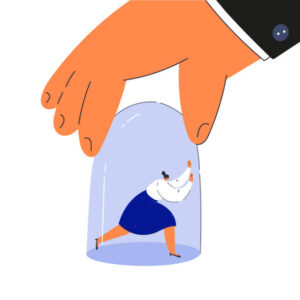
NH: They could be whatever the heck they wanted to be. They could do whatever they wanted to do. Now, that doesn’t mean that it was peaches and rainbows to live with me. I by no means want to give the impression that I was always super accommodating and I was always smiling and life was always wonderful. I was a pusher and I was an arguer. I was going to speak up and say “Hey, I’m not okay with this” and “Why is this happening?” and “I want to talk about this” and “I don’t think this is fair” and “What do you mean you’re done talking to me? No! You’re not done talking to me” and “Why do you get to say we’re done talking?” And any one of those entities will tell you that that was probably their experience with me and why they probably, at some point, didn’t like being around me. But that did not preclude them from still doing whatever they wanted, including leaving me. That was really the end-all-be-all: they still had the majority power, they still had that decision-making power, they had the financial power, they had the power that we typically give male entities and patriarchy.
AA: Yeah, and it brings to mind: I just had lunch with some women that I am close to and they were describing how their dad was extremely unpleasant all through their growing-up years and he wanted things he wanted. He was super headstrong and super stubborn, and their mother would just run to serve him and do anything she could to please him and to make sure he got what he wanted. And I said, “Why did she do that?” and they just said “Oh, because that’s what she was trained to do. That was her role.”
NH: That’s right. Some women will adjust to patriarchy by playing that service role and that is the best way they know how to survive the patriarchy.
I did not do that. I fought the service role. I had a mother who fought the service role and that was what was a role model to me. My mother also fought the service role and so I did have role-modeled to me that strong Latin woman boisterous personality, but when I really look at all the decisions that were made it was my quiet Germanic father who still made all the decisions. It didn’t matter how much my mother ranted. She was the one I remember the most because she was the most lively in our family, but it was still my father’s. We lived where he wanted to live, we followed his career, he made the bigger financial decisions–those were things that weren’t necessarily made completely in partnership with my mom.
I think a lot of males who are socialized in our current culture believe that they are egalitarian and want to be, and yet they have not had the role-modeling nor the legacy of equality nor feminism. None of us have.
And I would say that I followed that pattern fairly closely in my relationship as well, even though I was very strong-minded and shared my opinions and oftentimes fight if I felt like I wasn’t being heard or things of that nature. So that’s a different way to go, is the fighter. And that’s what I think is interesting: that I would say initially, or at times, these men in my life (including the Church) liked that about me. The men in the Church like that I would show up and teach and have ideas and be a leader and run the Relief Society. They liked that I would be in the Ward Council and have a lot of energy, and find solutions, and have opinions, and sometimes they really enjoyed that–especially when it was useful and purposeful and it served families. Not so much when I would raise my hand and say “I don’t agree with you” and “I don’t think that’s the best decision for this Ward” and “I don’t think that’s how we should spend that money” and “I don’t think that’s how that activity should go” and “I don’t think that’s how we should serve that family” and “I don’t think that you should make them cut that particular cost in order for them to get funds for their Christmas dinner”…You know, and I would voice those things very strongly and not in the primary voice and not with pastel colors, that was not my style.
So then it was intrusive, then I was too aggressive, then it seemed like I wasn’t playing nice. That’s when those gender roles, that we’ve all been socialized to see us as ‘nasty’, ‘nasty women’ (whereas a man who will show up in a very similar way and be seen as a leader or that aggression in a man is seen as positive whereas aggression in women is seen as offensive and disrespectful) then that came back to bite me in the butt in those particular systems.
That’s why in the poetry, going back to your comments, yes, it’s that juxtaposition. On the one hand I am a fish out of water, I can barely breathe, I’m terrified. At the same time that’s why I tell myself, I say “Remember.” That’s the reminder to myself that it is better to be free. Because I do have to remind myself at times, that even though it is scary, it is better to be away from those spaces that could not contain me–they could not complete me and they would not honor or see me–because the system is not meant to honor, to see, to complete strong female entities.
AA: That was beautiful and really powerful and I love that last part especially, talking about the structure of it, I think is really useful. That they wanted you to speak to a certain point, but only using the script that they decided was kosher, right? They got to set the rules. They got to set the terms of engagement just as a given which you don’t even question.
So thank you, Natasha. I’m so honored that you shared that beautiful poem with us and some of your thoughts about it. Again, I want to tell you how brave I think you are. I grieve to see the part that I saw of those three, which was the way you were treated by the institutional Church, and I really grieve with you. You deserved better and I’m really sad that happened to you, but so gratified and happy to see you thriving on the other side. I admire you and I’m super grateful that you participated today and shared that with us.
NH: Thank you so much, Amy, for having me. It’s always a pleasure to talk with you and be part of this amazing work that you’re doing.
I am so much
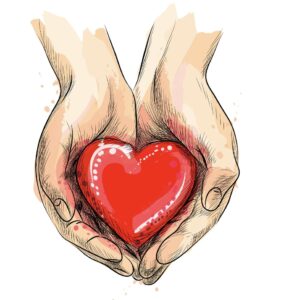
love.
Listen to the Episode
&
Share your Comments with us below!

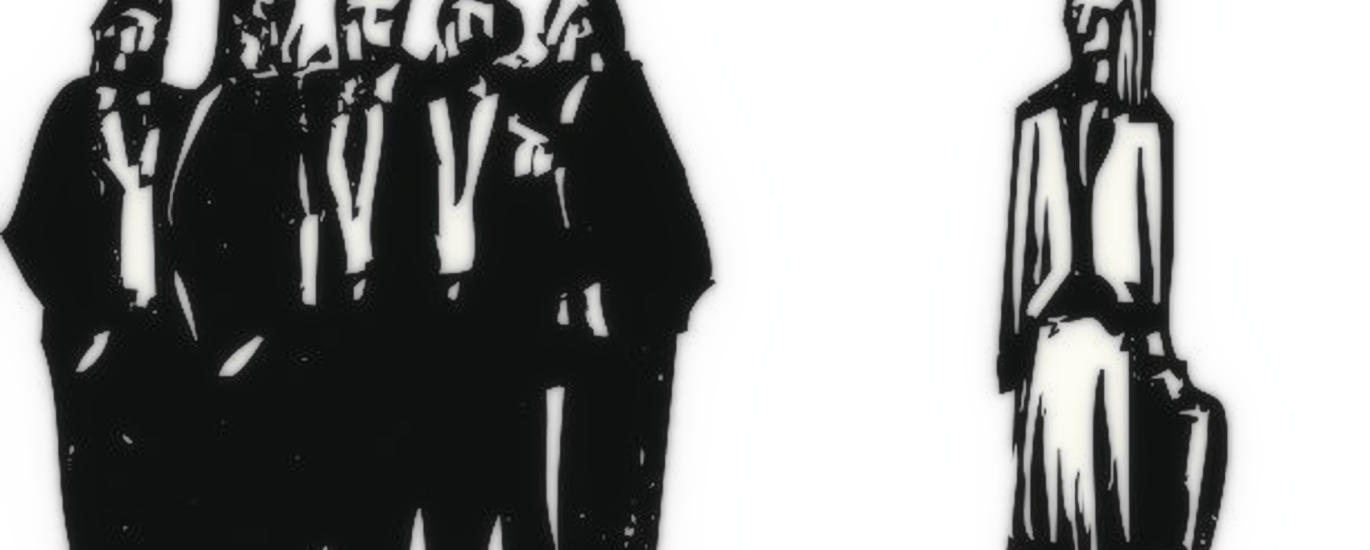
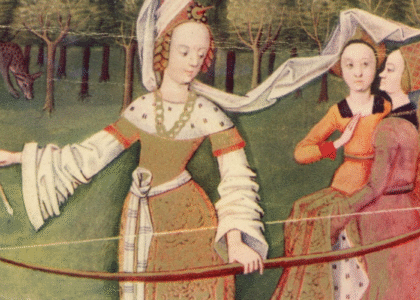
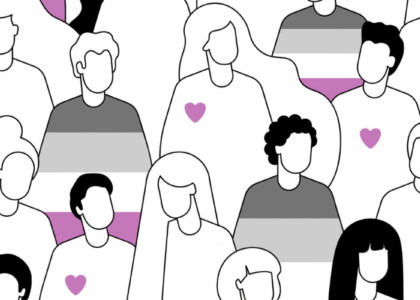
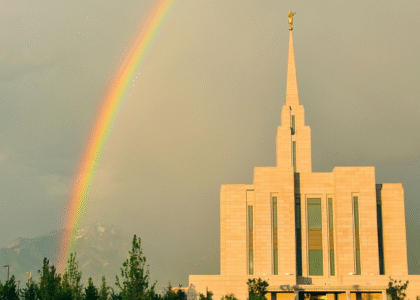

This entire episode had me in tears.
OMG! This is so real for so many of us! You are so right-on, Natasha. The reality is that women are “taught” to be nicey-nicey. And even when we are told that we can be strong, independent, successful leaders – and yes, we can achieve all our dreams – we are always somehow held back. How? Well, we are subtly reminded that it’s not nice to be outspoken, it’s not lady-like to argue against “that’s how it’s always been”, it’s not proper to be a woman “retobona” or “machona”. I personally felt like it was all lip service. A father was supposed to say those encouraging words and show support to female children – but they never truly expected that it would come to fruition. So, when you met some of those personal goals, the gut wrenching guilt I felt was overpowering. I knew my soul was suppressed and yet I would retreat into the nicey-nicey role. The result was over-compensating in the other direction just so that I could be accepted and loved. I was no longer “machona”, I was the favored child who never disobeyed, who was an example to my siblings, who was often referred to as “No hay otra como mi Lucy”. All the while I felt like an imposter because my soul was raging and so confused! I had to pick sides. So, Natasha, you’ve said and published what so many of us have suppressed all in the game of life. What is this game we play? We hopscotch from one role to another depending on how strong and determined we are, or how weak and overpowered we are at certain times in our life. You, my dear, are a woman of substance. You are such an inspiration. You are so brave. You are so real. You are so loved.
What You Are Is Where You Were When.